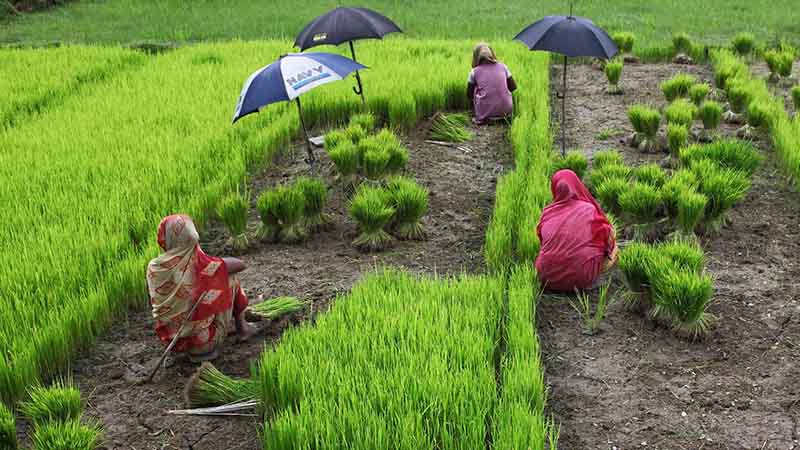Published:

Scottish-based scientists are helping Bangladeshi nations prepare for the sustainable distribution of an eventual COVID-19 vaccine.
Supported by UK Research and Innovation (UKRI), an international team of researchers led by scientists at Heriot-Watt University and the University of Birmingham will assess the capacity and preparedness of Bangladesh’s cold-chain framework - creating a roadmap and model for global COVID-19 vaccination.
Uniting British academics with their counterparts at BRAC University, in Bangladesh, and Bangladesh University of Engineering and Technology (BUET), the team is seizing the opportunity to align their research with renewable energy and energy efficiency solutions.
Universal vaccine access is already a major challenge in low-income countries, due to the lack of robust refrigerated cooling networks especially to remote communities. Mass vaccination for COVID-19 will need to deliver vaccines to people globally at scale and speed never before considered.
Bangladesh has one of the world's largest pharmaceutical and vaccine industries, with a vaccination framework supported by Gavi, the Vaccine Alliance and the World Health Organisation (WHO), but, like many countries, still lacks the capacity to deliver unprecedented, fast-track mass vaccination.
The Bangladeshi study runs alongside award-winning work by Heriot-Watt University and the University of Birmingham focusing on cold-chain capacity in Rwanda and India.
Professor Toby Peters, Senior Research Fellow at Heriot-Watt University and Professor of Cold Economy at the University of Birmingham, commented:
“Bangladesh is confronted with a difficult challenge of protecting their people and sustaining the economy. Rapid and efficient mass vaccination is the only way forward, making our upcoming work critical – not just for Bangladesh, but many other countries across the Global South.
“Sustainable cold-chain development will support Bangladesh’s economy and help to support existing immunisation and cold-chain programmes as well as a COVID-19 vaccine. More importantly, this work will help create a blueprint and model for an efficient delivery mechanism to ensure that the vaccine will be provided globally.”
Bing Xu, Associate Professor of Finance at Heriot-Watt University added:
“We need to develop a whole-system approach building upon Bangladesh’s existing logistics infrastructure, and distribution system for mass scale COVID-19 vaccinations.
“There is also an urgent need to identify Bangladesh’s financing gaps to ensure COVID-19 vaccines to be adequately prepared to store, transport, and deliver to their population.
“This will involve exploring suitable financing channels to fund the mass vaccination without impacting country’s current immunisation programme.”
Co-Investigator Professor Farzana Munshi, of BRAC University, commented:
“This project will assist policy makers in designing policies on the most sustainable interventions on medical supply chain at regional, national scale for COVID-19 but also other potential future natural disasters and epidemics."
Professor Ijaz Hossain, Dean of Engineering at BUET, added:
“We are excited to support the deployment of sustainable solutions and use of renewable energy. Our professors have been providing technical consultancy services for a long time to various projects encompassing energy efficiency and greenhouse gas mitigation.”
Researchers will also make their findings available to other countries to help public health planners evaluate their best options for creating sustainable temperature-controlled supply-chains for health and medical supplies in epidemics and natural disasters.
UK Government Minster for Scotland, Iain Stewart said:
“These remarkable projects will play a critical role in helping to address the issue of Covid-19 transmission at elections in the developing world and help ensure workers’ rights are protected.
“Adapting to the risks of Covid-19 has been especially hard for the world’s most vulnerable communities. It’s great news that Scottish researchers are helping the international community respond to the pandemic and making an impact tackling Covid-19 globally.”
UK Business Secretary Alok Sharma said:
“Defeating coronavirus is a truly global endeavour, which is why we’re backing Britain’s scientists and researchers to work with their international counterparts identify tech solutions to treat and combat this virus around the world. The research projects we are backing today will equip some of the most vulnerable communities with the resources they need to tackle Covid-19 and build their long-term resilience to respond to future pandemics, making us all safer.”
Bangladesh has experienced rapid GDP growth over the past ten years (average +5%), but is still one of the world’s least developed countries with eighth-largest population and one of the highest population densities (1265 people/km²) - and crucially a lack of sustainable cooling infrastructure and resilient electricity in rural communities.